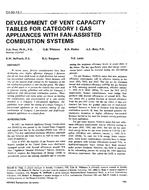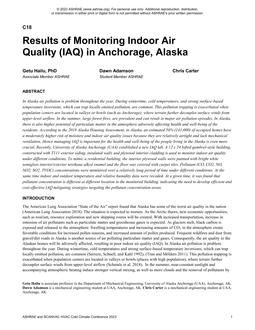Click here to purchase
Green roof systems have been increasingly implemented in various climatic regions around the world due to several benefits including building energy savings resulting from the thermal performance improvement of the roofing system. This study discusses the dynamic thermal and moisture responses of the extensive green roofs varying in terms of drainage layers; a green roof with non-reservoir polypropylene drainage (GR); a green roof with a reservoir polypropylene drainage (RES); and a green roof with non-reservoir expanded polystyrene (EPS) drainage layers that are installed on a insulated roof deck of the Whole Building Performance Research Laboratory (WBPRL) located at British Columbia Institute of Technology (BCIT), Burnaby Campus. During the cooling months, June to August, the heat gains through GR, RES, and EPS are comparable; however, the heat losses through the RES and EPS are 11.3% and 35% lower than GR. During the heating months, October to April, the highest monthly average heat loss through the test building occurs in December followed by January. In December, the average heat loss through GR is 2.02 W/m2, and RES and EPS roofing systems lowered the heat loss by 17.2%and 36.7%, respectively. In winter, the sheathing board temperature of EPS is up to 4oC (7.2oF) and 1.5oC (2.7oF) higher than GR and RES, respectively. From a moisture condensation perspective, the EPS reduces the risk of condensation when compared to GR and RES. RES delays the rain runoff compared to other systems but the water storage feature of RES to store and release moisture to the growing media in spring and summer is insignificant. In summer, the solar radiation heats the growing media more in the EPS and increases the growing media drying rates. In the winter the reverse happens, the growing media in the EPS is relatively colder.
Product Details
- Published:
- 2022
- Number of Pages:
- 8
- Units of Measure:
- Dual
- Product Code(s):
- DBldgsXV-C012


